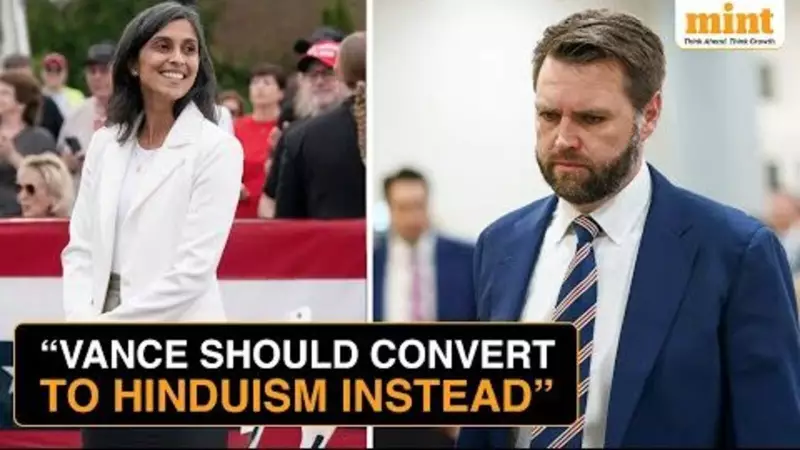
Republican Vice Presidential candidate JD Vance finds himself at the center of a growing controversy after remarks about his wife Usha Vance's Hindu faith sparked outrage within the Hindu community. The incident has put the spotlight on religious sensitivity in American politics.
The Controversial Comments
During a recent public appearance, Vance suggested that his wife, Usha Chilukuri Vance, should "convert from Hinduism," a statement that has drawn sharp criticism from Hindu leaders and organizations across the United States. The comments were made despite Usha's public identification with her Hindu heritage.
Hindu Community Response
Prominent Hindu groups have expressed deep concern over Vance's remarks, calling them disrespectful and insensitive. Several organizations have issued statements demanding an apology and urging the political candidate to engage more meaningfully with Hindu philosophy and teachings.
Key concerns raised by Hindu leaders include:
- Disrespect towards religious diversity and personal faith choices
- Undermining the importance of religious tolerance in political leadership
- Lack of understanding about Hindu traditions and beliefs
- Potential impact on Hindu-American voters
Political Implications
The timing of this controversy is particularly significant as the US election campaign intensifies. With approximately three million Hindu Americans in the United States, religious sensitivity has become a crucial factor in political outreach and voter engagement.
Political analysts suggest that such comments could alienate not only Hindu voters but also other religious minorities who value religious freedom and respect for diverse faith traditions.
Call for Dialogue
Rather than simply demanding an apology, several Hindu organizations have extended invitations to Vance to learn about Hinduism and engage in constructive dialogue. They emphasize the importance of political leaders understanding and respecting the religious diversity of the American electorate.
The controversy highlights the ongoing challenge for political figures to navigate religious sensitivity while maintaining authentic personal beliefs and political positions.






